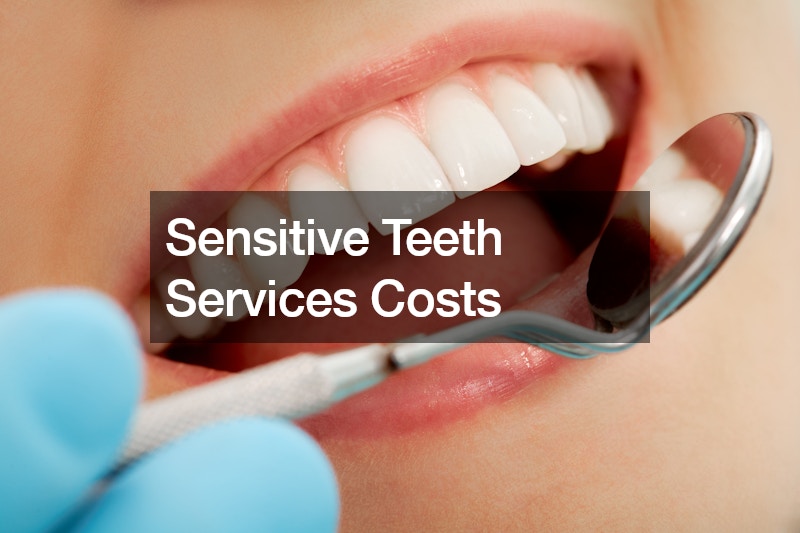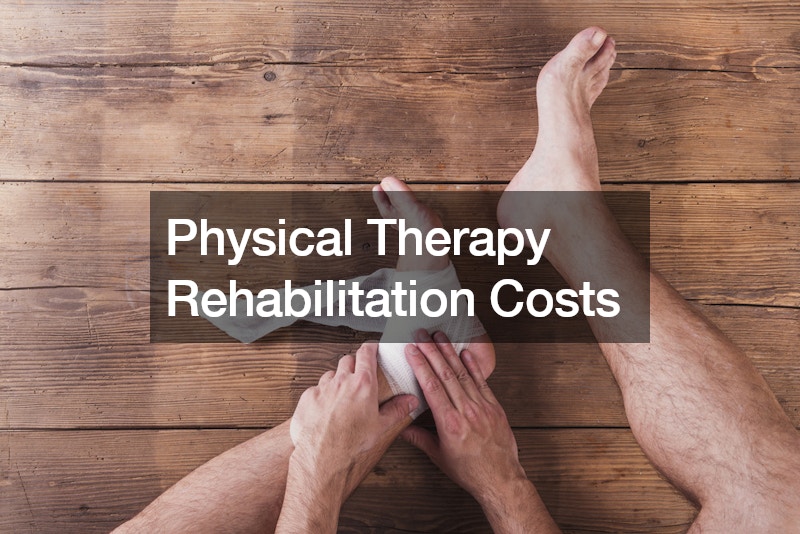
When it comes to healthcare, the costs can vary widely depending on the service you require. Understanding these expenses can help you plan and budget more effectively. In this blog, we’ll delve into the expenses associated with various healthcare services, ranging from veterinary hospitals to local cardiopulmonary rehabs.
Veterinary Hospital Costs

Owning a pet comes with the responsibility of ensuring their health and well-being. Visits to a veterinary hospital can be routine or emergency, and the costs can vary accordingly. Routine check-ups and vaccinations are generally affordable, ranging from $50 to $200 per visit. However, emergency services can be much more expensive, with costs easily reaching into the thousands, especially if surgery or extended hospital stays are required.
Pet insurance can help mitigate these costs, but it’s important to understand what is covered under your policy. Additionally, the cost of medications and follow-up visits should also be considered when planning for your pet’s healthcare needs. Vets often recommend preventative care measures, which, while an added expense, can save money in the long run by preventing more serious health issues.
Regular veterinary visits are crucial for early detection of potential health problems. For instance, dental cleanings, which cost between $300 and $700, can prevent severe dental disease that might require more invasive and costly treatments later. Similarly, routine blood tests, typically costing around $80 to $200, can detect underlying health issues early, potentially saving on more expensive treatments in the future.
Emergency care is where costs can escalate quickly. Emergency vet visits can range from $500 to $2,000, depending on the severity of the issue and the treatments required. Surgeries for issues like broken bones or internal injuries can cost between $1,500 and $5,000. Additionally, if your pet requires an extended stay at the hospital, you might be looking at costs of $100 to $300 per day for hospitalization alone.
Medicare Insurance Costs Near Me
For seniors and certain younger individuals with disabilities, Medicare insurance is a crucial part of managing healthcare expenses. The costs associated with Medicare can vary depending on the specific plan and coverage you choose. Typically, Medicare Part A, which covers hospital stays, is premium-free for most people, but there can be substantial deductibles and coinsurance costs.
Medicare Part B, which covers outpatient services like doctor’s visits and preventive care, usually has a monthly premium, an annual deductible, and a 20% coinsurance for most services. When searching for ” Medicare insurance near me,” it’s essential to compare plans and providers to find the most cost-effective option that meets your needs. Additional coverage through Medicare Advantage Plans (Part C) or prescription drug plans (Part D) can also affect overall costs.
Medicare Advantage Plans, also known as Part C, often provide additional benefits beyond what Original Medicare covers, such as vision, hearing, and dental care. However, these plans can come with their own set of costs, including monthly premiums, copayments, and coinsurance. The premiums for these plans can range from $0 (with higher out-of-pocket costs) to several hundred dollars per month, depending on the level of coverage.
Prescription drug coverage under Medicare Part D is another critical consideration. The costs associated with Part D plans include monthly premiums, an annual deductible, and coinsurance. Premiums for Part D plans vary widely, from about $15 to $100 per month, depending on the specific plan and the drugs covered. Understanding the formulary (the list of covered drugs) and the associated costs for your specific medications is crucial in selecting the right plan.
Medigap, or Medicare Supplement Insurance, can help cover some of the costs that Original Medicare does not, such as copayments, coinsurance, and deductibles. The premiums for Medigap policies vary based on the plan type, the insurer, and your location, but they generally range from $50 to $300 per month. While Medigap policies can provide significant savings on out-of-pocket costs, it’s essential to compare the premiums and benefits of different plans to ensure you are getting the best value for your needs.
Chiropractic Clinic Expenses

Chiropractic care is a popular alternative treatment for various musculoskeletal issues. The cost of services at chiropractic clinics can vary widely based on the location, the practitioner’s experience, and the specific treatments required. On average, a single chiropractic session can range from $30 to $200. Initial consultations might be higher due to the need for a comprehensive evaluation.
Some chiropractic treatments, such as spinal adjustments or therapeutic exercises, may be covered by health insurance, but this varies by provider and plan. It’s advisable to check with your insurance company beforehand to understand your coverage. Additionally, many chiropractic clinics offer packages or membership plans that can reduce the per-visit cost for regular patients.
The initial consultation and examination are typically the most expensive part of chiropractic care, often ranging from $60 to $200. During this visit, the chiropractor will assess your condition and develop a treatment plan, which may include a series of follow-up visits. Follow-up sessions are generally less expensive, averaging between $30 and $75 per visit.
For more extensive treatments, such as decompression therapy or therapeutic massage, costs can range from $50 to $200 per session. Some chiropractic clinics also offer additional services, such as nutritional counseling, acupuncture, and physical therapy, which can add to the overall cost of care. However, these services can provide a comprehensive approach to health and wellness, potentially reducing the need for more expensive medical treatments in the future.
Food Poisoning Treatment Costs
Food poisoning is an unpleasant but common ailment that can sometimes require medical treatment. The cost of food poisoning treatment depends on the severity of the symptoms and the type of care needed. Mild cases can often be managed at home with over-the-counter medications and hydration, costing around $20 to $50.
However, severe cases that require medical attention can be much more expensive. A visit to an urgent care center might cost between $100 and $300, while an emergency room visit can range from $500 to $3,000 or more, depending on the diagnostic tests and treatments required. Hospitalization for severe dehydration or complications can lead to even higher costs, often running into thousands of dollars.
Diagnostic tests, such as blood tests, stool cultures, and imaging studies, can significantly add to the cost of food poisoning treatment. Blood tests alone can cost between $100 and $300, while stool cultures typically range from $150 to $350. Imaging studies, such as X-rays or CT scans, which may be necessary to rule out other conditions, can add another $200 to $1,000 to the total cost.
In some cases, food poisoning can lead to complications that require more intensive treatment, such as intravenous (IV) fluids, antibiotics, or even surgery. The cost of IV fluids and medications can range from $200 to $500, while antibiotic treatments can add another $50 to $200. Surgery for severe complications, such as intestinal perforation or abscesses, can cost tens of thousands of dollars, depending on the complexity of the procedure and the length of the hospital stay.
Costs of Primary Care Services
Primary care services are the cornerstone of healthcare, providing essential preventive and ongoing care. The cost of these services can vary depending on whether you have insurance and the specifics of your plan. For those without insurance, a visit to a primary care physician can range from $100 to $300.
With insurance, out-of-pocket costs will depend on your deductible, copay, and coinsurance. Preventive services such as annual physicals and vaccinations are often covered at no cost under many insurance plans. However, any additional tests or treatments ordered by your primary care physician might incur extra costs.
The cost of common diagnostic tests ordered during primary care visits can vary widely. For example, blood tests can range from $20 to $200, while more comprehensive panels, such as metabolic or lipid panels, can cost between $50 and $300. Imaging studies, such as X-rays, ultrasounds, or MRIs, can add another $100 to $1,000 or more to the total cost, depending on the type of imaging and the area of the body being examined.
Chronic disease management, such as for diabetes, hypertension, or asthma, can also add to the overall cost of primary care services. Regular monitoring, medications, and follow-up visits are essential for managing these conditions, and the costs can add up over time. Medications for chronic conditions can range from $10 to $100 or more per month, depending on the type and brand of the medication. Regular follow-up visits, typically every 3 to 6 months, can cost between $50 and $150 per visit with insurance.
Cosmetic Dentist Expenses
Cosmetic dentistry focuses on improving the appearance of your teeth and smile. The costs associated with a cosmetic dentist can vary widely depending on the specific procedures you choose. Teeth whitening, for example, can cost between $300 and $800, while more extensive procedures like veneers can range from $900 to $2,500 per tooth.
Orthodontic treatments, such as braces or clear aligners, can cost anywhere from $3,000 to $7,000. Dental implants, which are often used to replace missing teeth, can be one of the most expensive procedures, typically costing between $1,500 and $6,000 per implant. It’s important to note that most cosmetic dental procedures are not covered by insurance, so these costs are usually out-of-pocket.
In addition to the initial procedure costs, there are often additional expenses for follow-up visits, maintenance, and potential replacements. For instance, veneers and dental implants may require periodic check-ups and adjustments, which can add $100 to $300 per visit. The lifespan of cosmetic dental treatments also varies, with veneers typically lasting 10-15 years and dental implants potentially lasting a lifetime with proper care, though occasional repairs or replacements may be needed.
Cosmetic bonding, another common procedure, involves applying a tooth-colored resin to repair chipped or discolored teeth. This procedure can cost between $100 and $400 per tooth, depending on the extent of the repair. While less expensive than veneers, bonding may need to be replaced more frequently, typically every 5-10 years.
Sensitive Teeth Services Costs

Sensitive teeth can cause significant discomfort and may require special treatments. The cost of sensitive teeth services can depend on the underlying cause and the treatment approach. Desensitizing toothpaste and mouthwashes are affordable over-the-counter options, typically costing between $5 and $20.
For more severe cases, professional treatments at the dentist’s office may be necessary. These treatments can include fluoride gels, desensitizing agents, or bonding, with costs ranging from $100 to $300 per session. In cases where gum recession is the cause, more extensive treatments like gum grafting might be required, which can cost between $600 and $1,200 per area.
Root canal therapy, sometimes needed for severe sensitivity caused by tooth decay or infection, can cost between $500 and $1,500 per tooth. This procedure is often necessary to save a damaged tooth and alleviate pain. Additionally, if a crown is needed after a root canal, it can add another $800 to $2,000 to the total cost, depending on the material and the dentist’s expertise.
For those with chronic sensitivity, regular dental visits for cleanings and check-ups are essential to manage the condition and prevent further damage. These visits typically cost between $75 and $200 each, depending on the dentist and whether X-rays or other diagnostic tools are used. Investing in regular preventive care can help minimize the need for more extensive and costly treatments in the future.
Physical Therapy Rehabilitation Costs

Physical therapy rehabilitation is essential for recovering from injuries, surgeries, and managing chronic conditions. The cost of physical therapy can vary based on the type and frequency of treatment, the therapist’s experience, and the location of the clinic. On average, a single session can cost between $50 and $350.
Many insurance plans cover physical therapy, but there may still be copays or coinsurance costs. It’s important to verify your coverage and understand any limitations, such as the number of covered sessions. Some clinics offer package deals or sliding scale fees based on income, which can help make physical therapy more affordable.
For those recovering from major surgeries, such as joint replacements or spinal surgery, the total cost of physical therapy can be significant. A typical rehabilitation program might include 2-3 sessions per week for several months, with total costs ranging from $1,000 to $5,000 or more, depending on the duration and intensity of the therapy.
Specialized physical therapy services, such as aquatic therapy, manual therapy, or sports-specific rehabilitation, can also affect the overall cost. Aquatic therapy, which involves exercises performed in a pool, can be particularly beneficial for those with joint pain or mobility issues. However, these sessions often cost more, typically ranging from $75 to $200 per session.
Local Cardiopulmonary Rehab Expenses
Cardiopulmonary rehab is a specialized program designed to improve cardiovascular and lung health after a heart attack, surgery, or chronic pulmonary condition. The cost of local cardiopulmonary rehabs can vary depending on the program’s length and intensity. On average, a comprehensive program can cost between $2,000 and $4,000.
Medicare and many private insurance plans often cover a significant portion of these costs, especially if the rehab is deemed medically necessary. However, out-of-pocket expenses can still be substantial, so it’s important to discuss financial options with the rehab facility and your insurance provider.
A typical cardiopulmonary rehab program includes a combination of exercise training, education, and counseling. The cost for exercise sessions alone can range from $50 to $150 per session, depending on the facility and the level of supervision required. Educational sessions, which cover topics such as diet, medication management, and stress reduction, can add another $100 to $300 to the total cost.
In addition to the direct costs of the rehab program, there may be additional expenses for diagnostic tests, such as stress tests, echocardiograms, or pulmonary function tests. These tests can cost between $200 and $1,000 each, depending on the complexity and the facility. Follow-up visits with cardiologists or pulmonologists, typically costing $100 to $300 per visit, may also be necessary to monitor progress and adjust treatment plans as needed.
Understanding the costs associated with various healthcare services is crucial for effective financial planning and ensuring you receive the necessary care. From veterinary hospitals and primary care services to chiropractic clinics and cardiopulmonary rehab programs, each type of care comes with its own set of expenses. By being informed and proactive, you can make better decisions about your healthcare and manage costs more effectively. Whether you’re seeking “Medicare insurance near me” or budgeting for food poisoning treatment, knowing the potential costs can help you navigate the healthcare system with confidence.
By taking the time to understand these expenses, you can better prepare for the financial aspects of healthcare, ensuring that you and your loved ones receive the care you need without unnecessary stress. Whether it’s regular veterinary visits for your pets, managing chronic conditions with primary care services, or undergoing rehabilitation after surgery, being informed about the costs can help you make the best choices for your health and well-being.



